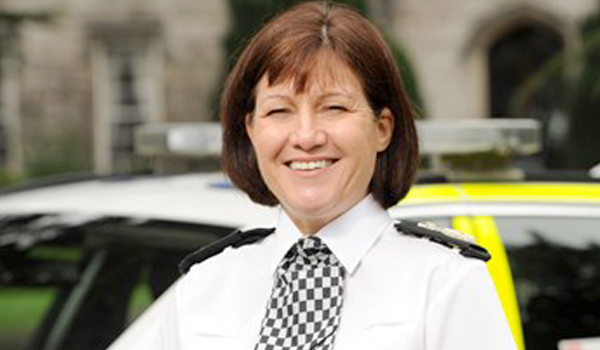Chief constable reinforces her to commitment build effective and inclusive policing
Police Scotland’s chief constable has reinforced her “ongoing commitment” to building an anti-racist, anti-discriminatory service that delivers for all communities.
Speaking ahead of the first year since Police Scotland acknowledged “institutional racism, sexism and discrimination”, Jo Farrell outlined work to support effective leadership, enhance equality education and focus on values and standards.
Addressing a meeting of the Scottish Police Authority on Thursday (May 23), Ms Farrell said: “One year ago, on May 25, 2023, my predecessor addressed the matter of institutional racism, sexism and discrimination within Police Scotland and outlined policing’s determination to build an inclusive, anti-racist, anti-discriminatory service for our people and the communities we serve.
“On appointment, I agreed with that assessment and underlined my commitment to necessary change.
“People from all communities must know that when we talk about keeping people safe, we mean them.
“All communities must feel able to speak to the police, to report a crime or to share information. I want people from all communities to see policing as a potential career.
“Our Policing Together programme drives action for meaningful change across four strategic pillars – leadership; training; professionalism and prevention; and communications.
“Injustice and discrimination have deep roots in history and our work to address it requires commitment, focus, leadership and persistence. Today, I reaffirm that commitment and thank the Authority for your ongoing support and challenge, led by Tom Halpin, in this vital area of work.
“Our success will be measured by improved experiences of our officers and staff and the public we serve and we are reporting on Policing Together performance through the Authority twice yearly.”
During the meeting, the chief constable provided a wide-ranging update on how officers and staff are delivering for the public, including securing important convictions in murder and organised crime cases.
In particular, Ms Farrell highlighted Police Scotland’s response to the Hate Crime and Public Order (Scotland) Act, which came into force on April 1.
The legislation sought to provide greater protection for victims and communities and to tackle the harm caused by hostility and prejudice, but Ms Farrell believes its implementation “was at times hijacked to make mischief”.
“The legislation and policing’s role in implementing it have been subject of debate and interest and in the first week of implementation, we received a surge of over 7,000 online hate reports,” she said.
“I do believe the implementation was at times hijacked to make mischief and a vast majority of these reports were submitted anonymously and were not classified as hate crimes or non-crime hate incidents.
“During this surge, we increased capacity in our Contact, Command and Control (C3) Division and the impact on frontline policing was minimal. Since then, the number of online reports has fallen significantly, with fewer than 60 during the week ending May 19.
“To support implementation, we developed and delivered a programme of training for officers, including an e-learning module which has been completed by around 90 per cent of officers, as well as a series of in-person and online workshops.
“We’ve trained a cadre of around 80 hate crime advisers and 450 hate crime champions to support colleagues while C3 officers and staff also received tailored training.
“As I’ve been clear, I have great confidence in our officers to enforce new legislation with the professionalism and good sense they demonstrate day in, day out and with the support of the programme outlined.”
The chief constable added: “Clarity about policing’s approach to reports of hate crime and around the recording of non-crime hate incidents is important and we are sharing more information in this regard.
“Earlier this month, we published interim guidance for officers on the recording of non-crime hate incidents which outlines a reasonable person and policing purpose test and provides direction that the details of the other party of a report would not be routinely recorded as part of a non-crime hate incident.
“We continue to develop a policy and standard operating procedure around our response to reports of hate, including hate crime and non-crime hate incidents which will align as closely as possible with the College of Policing guidance.”


